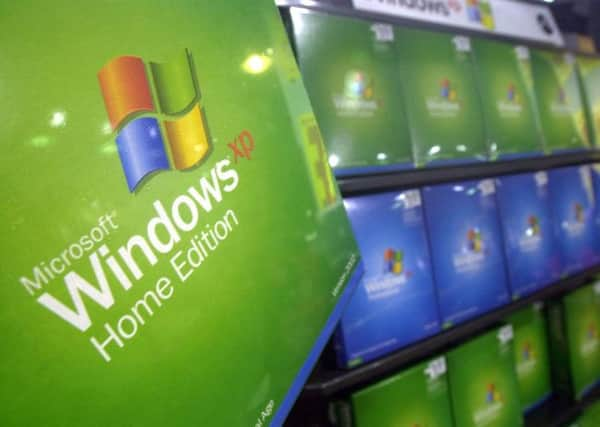Don’t throw out Windows XP just yet


FOUR weeks from now, Microsoft will abandon the one operating system to bear its name that people actually seemed to like, or at least tolerate. Windows XP has been a fixture on home and work PCs since 2001 and remains in place on an estimated 500 million of them.
Yet, on April 8, it becomes obsolete. That, at least, is if you take at face value Microsoft’s decision to end support for it.
Advertisement
Hide AdAdvertisement
Hide Ad“Support” means the security updates and patches that are downloaded to your computer to protect it from viruses, hacks and other nasties. The fact that Windows is vulnerable to so many of these is one of the fundamental flaws in its design.
The reason Microsoft is ending support now is that it wants you to “upgrade” (in other words, pay them money for) a newer version of Windows. But is that really necessary? And if you’re among the 500 million about to be cast adrift should you be worried? Allow me to be your guinea pig.
One of the computers in my house still runs Windows XP and I plan to leave it doing exactly that. I don’t anticipate any fallout from Microsoft’s staunching of the updates tap because I turned it off myself long ago. I’ll let you know if I hit problems.
There are a number of reasons for not wanting to upgrade, and disinclination to pay Microsoft any more money is but one. There’s an old adage in computing, which is that if something ain’t broke, it’s not worth trying to fix – and the computer in question not only ain’t broke, it’s also the fastest, most reliable one I use. More recent versions of Windows are more demanding on the hardware and an update is more likely to slow it down than speed it up. This is even more true of older machines which may not be capable of running Windows 7 or 8 at all.
Advertisement
Hide AdAdvertisement
Hide AdBesides, some of my software is compatible with Windows XP but not newer versions; replacing all that too would be prohibitively expensive.
As for security, it’s true that as the updates dry up the theoretical risk of infection increases. But so long as you run an effective (free) anti-virus program like AVS or AntiVir, you are, for practical purposes, protected.
The fact is that operating systems are not rendered obsolete by some arbitrary, commercial decision to withdraw support, but by their inability to run newer software that you may at some point decide you need. When that happens, consider that the advent of iPads, Chromebooks and more has transformed the market since 2001. You may find you no longer need a Windows PC at all.